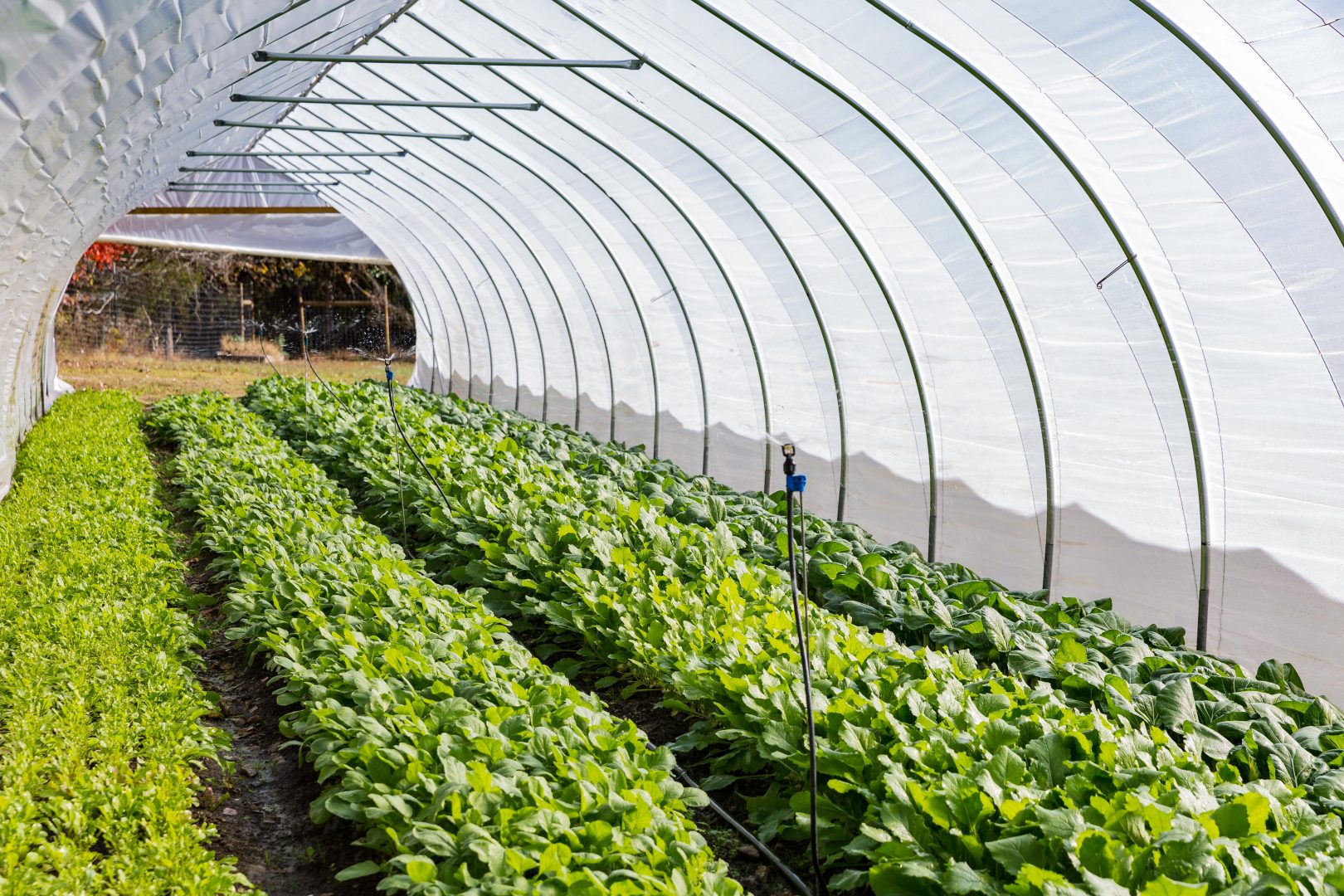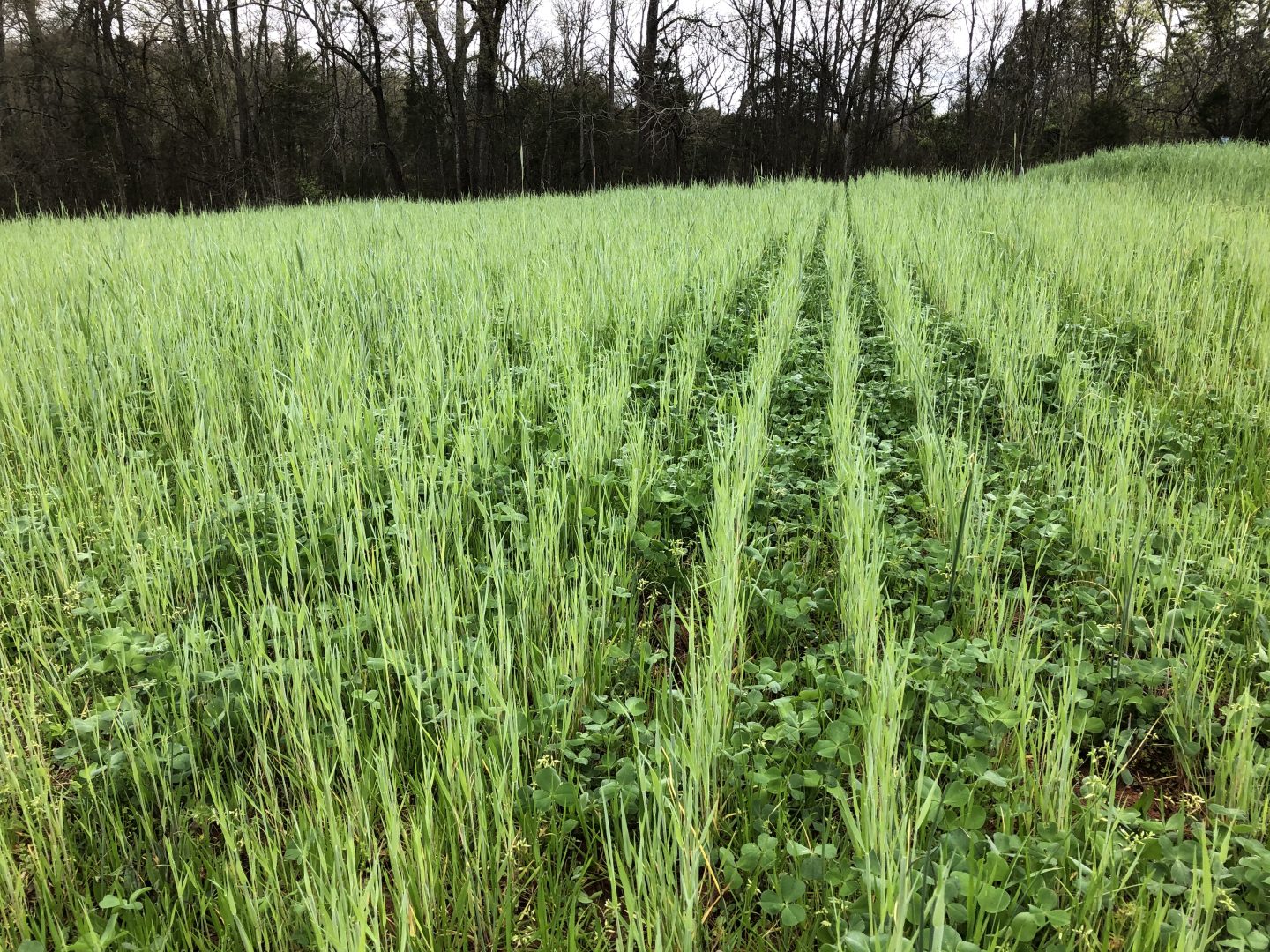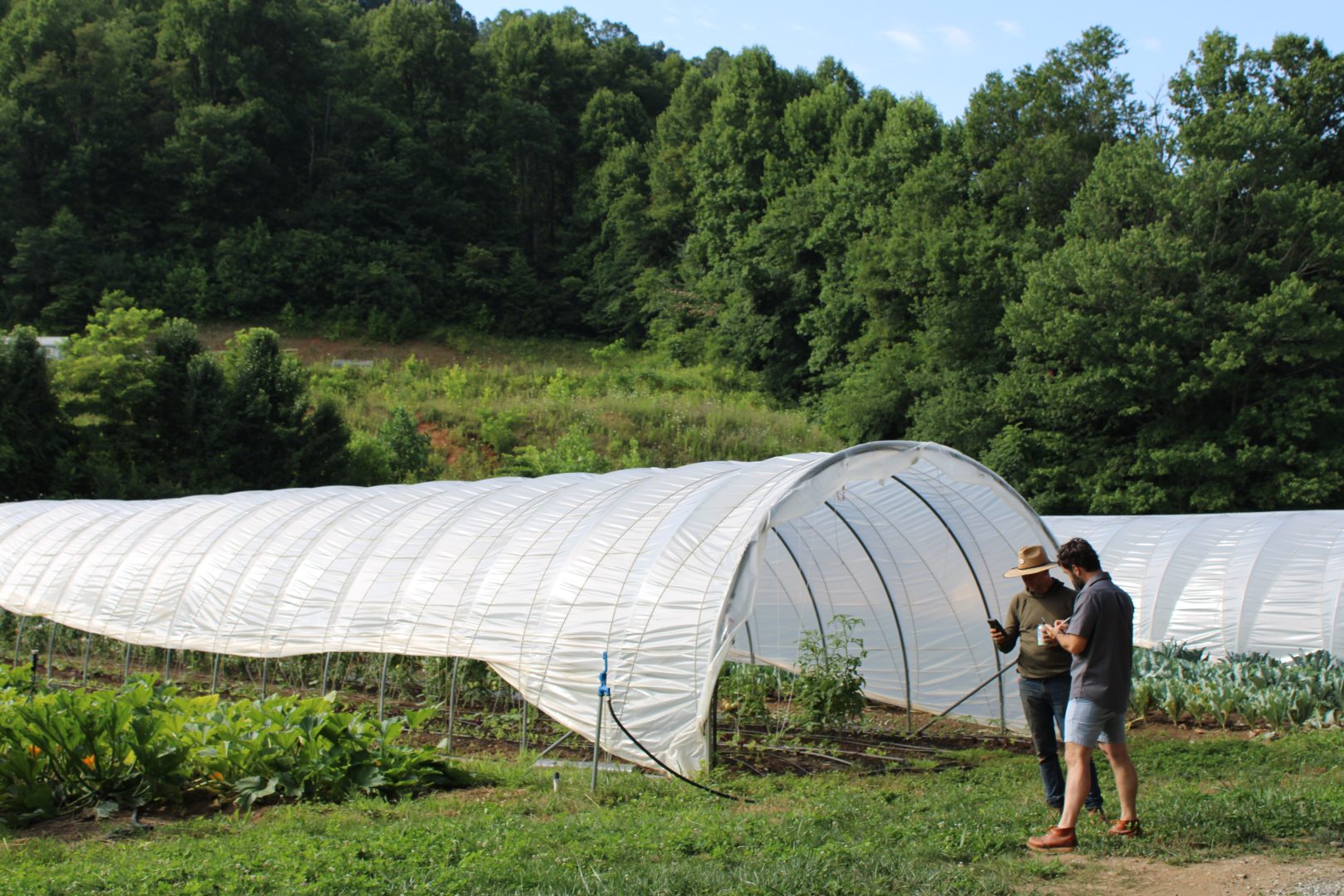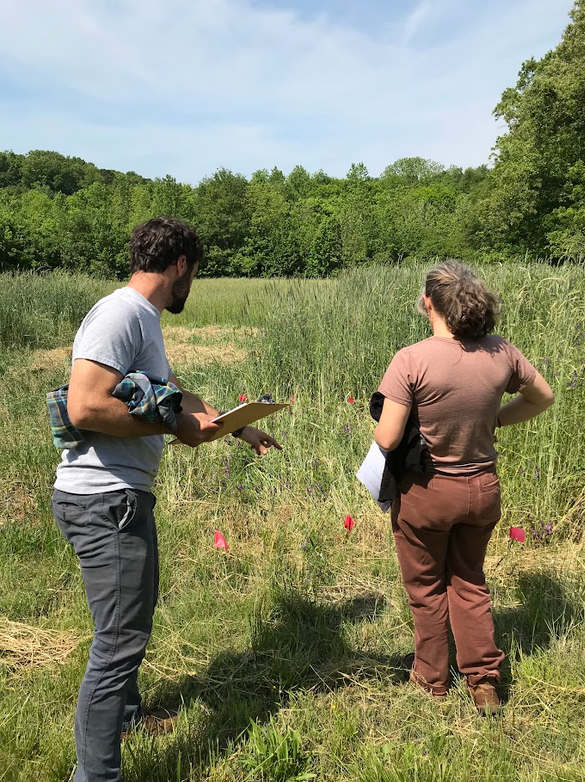Want to increase farm productivity and profitability? Reduce the off-site impact of nutrients and fertilizers on water quality? Improve farm resiliency to extreme weather events? Reduce flooding and hold more water in the soil profile? Increase wildlife and pollinator habitat? Consider conservation planning.
What is conservation planning?
Helping you help the land. Each farm is different and has its unique resource problems or concerns. A conservation plan can identify how you can improve the site and care for the natural resources on it.
Since each plan is custom, you are an integral part of the process.
You will work collaboratively with a conservation planner to identify your conservation goals and assess and analyze the natural resources issues on your farm related to soil, water, animals, plants, air, energy, and human interaction.
Whether you have dozens of acres or just one, a conservation plan combines your farming experience with the science-based knowledge of the conservation planner. It includes selected conservation practices, a reasonable schedule for installing these practices, and detailed information on every aspect of your practice recommendations.
This service is a program through USDA’s Natural Resource Conservation Service (NRCS). All conservation planners (also known as technical service providers) must be certified. CFSA has certified technical service providers on staff who can help you!
What can conservation planning help you do?
- Take advantage of federal funding for conservation projects on your farm through the Environmental Quality Incentives Program (EQIP).
- Address NRCS resource concerns for soil erosion and quality, water quality, plant/animal health, and energy on your farm by developing a whole-farm stewardship plan.
- Identify and provide details for specific conservation practices, such as nutrient management, cover cropping, rotations, and pollinator habitat that are appropriate to your farm.
Types of conservation activities
-
- Conservation Planning Activities (CPAs): Help you identify your conservation objectives and assess and analyze natural resource concerns on your land related to the soil, water, animals, plants, air, energy, and human interaction.
- Design and Implementation Activities (DIAs): Help you develop specific practice designs and management plans to implement conservation practices.
- Conservation Practices: Help you address specific resource concerns.
Producers may apply for a CPA and DIA in one year, then apply for Conservation Practice cost-share assistance the following year, or they can apply for a CPA in year one and a DIA and Conservation Practice cost-share assistance in year two.
While there are several types of CPAs and DIAs, CFSA specializes in Organic Transition (CPA 138 and DIA 140) and Soil Health Management (CPA 116 and DIA 162).

“The plan enhanced my knowledge and ability to plan what I’m going to do next in this field. Because of the soil, you just can’t plant corn in the same place year after year.”
– Allen Cockfield, J&C Cockfield Farms (Coard, SC)
Which conservation activities can CFSA help you with?
Organic Transition
- CPA 138 Conservation Plan Supporting Organic Transition contains planned conservation activities that address resource concerns resulting from the transition from conventional to organic production systems. It will include:
- A discussion of your farm’s objectives.
- A whole-farm resource assessment and identification of resource concerns.
- Selection of best conservation practice options for addressing resource concerns.
- A summary of the impacts of potential conservation practices on soil erosion and quality.
- The nuts and bolts of your Organic System Plan (OSP) as defined in the USDA National Organic Program (NOP) Standards.
- Here is a sample CPA 138 plan.
- DIA 140 Transition to Organic includes information on implementing structural and management practices that address resource concerns. It will include:
- An assessment of natural resource concerns and identification of conservation practices.
- Detailed implementation plan for each conservation practice includes
- Implementation requirements for preferred conservation practices.
- Recordkeeping, operation, and maintenance requirements.
- Cost estimates.
- Alternate practices may include
- Establishment of soil-building rotations.
- Establishment of field borders and buffers.
- Beneficial and wildlife habitat.
- Organic nutrient management and cover cropping.
Soil Health Plans
- CPA 116 Soil Health Management Plan identifies soil health concerns related to the soil’s physical, biological, and chemical properties. It will include:
- A resource inventory including conditions of natural resources, environmentally sensitive areas, and documentation of previously installed or implemented conservation practices and their impact on resource concerns.
- A comparison between current conditions and future conditions’ impact on resource concerns.
- Results of assessment tools include soil testing and soil health assessments.
- An evaluation of the conservation practice’s effects on land use, capital, labor, management, risk, profitability, and public health and safety.
- Here is an example of a CPA 116.
- DIA 162 Soil Health Management develops site-specific recommendations and designs for soil health-related practices that address the principles of soil health as identified in CPA 116. It will include:
- Soil Health Management Plan to minimize soil disturbance and maximize soil cover, biodiversity, and living roots.
- An assessment of natural resource concerns and identification of conservation practices.
- Detailed implementation plan for each conservation practice includes
- Implementation requirements for preferred conservation practices.
- Recordkeeping, operation, and maintenance requirements
- Cost estimates.
- An operation and maintenance plan for each design that you can use after implementing the practices is complete.
Interested in Applying for EQIP?
The Environmental Quality Incentives Program (EQIP) is a federally administered program designed to help growers address natural resource concerns by providing financial and technical assistance. The program focuses on soil, water, air quality, plant health, and habitat for wildlife.
Incentives for Conservation Planning
Conservation Planning Activities (CPAs) and Design and Implementation Activities (DIAs) are paid for with funding provided by NRCS. Payments from NRCS are higher for “historically underserved (HU) farmers,” which includes beginning farmers, limited-resource farmers, and socially disadvantaged producers.
Payments for CPAs and DIAs are made directly to CFSA. Because CFSA thinks this work is vital for farmers, we provide a cash rebate to producers who contract with us to do CPAs and DIAs. The value of the rebate varies depending on the size and complexity of the producer’s operation.
Cash rebates from CFSA to producers are in the table below. The rebate is usually distributed within 30 days of receipt of payment from NRCS to CFSA.
| REBATE TO NON-HU* FARMER | REBATE TO HU** FARMER | |
| CPA 138 – Organic Transition |
$250 |
$1,000 – $1,600*** |
| DIA 140 – Organic Transition |
$250 |
$950 – $2,600 |
| CPA 116 – Soil Health |
$250 |
$500 – $650 |
| DIA 162 – Soil Health |
$250 |
$700 – $1,450 |
*Historically underserved producers, as defined by the NRCS.
**The difference in rebate payments between HU and non-HU producers is based on higher payment rates from NRCS for plans written for HU producers.
***Payment rates for plans are determined by NRCS and vary by plan complexity; therefore, differences in rebate amounts depend on NRCS payment rates.
How to Apply
Since this is a program through NRCS, there are a few steps required to initiate conservation planning on your farm.
- Must be a current CFSA member. Not a member?
Join today! If membership is a financial burden, please contact our membership coordinator, Marianna Spence, via email or phone, 919-542-2402. - Apply to NRCS for CPA 138, DIA 140, CPA 116, DIA 162.
Name CFSA as the technical service provider (TSP). Here’s a helpful FAQ on that application process. - Apply to CFSA
All plans must be completed in consultation with an NRCS technical service provider (TSP) and CFSA has TSPs on staff. Applications are addressed in the order they are received.





